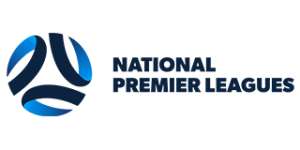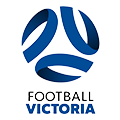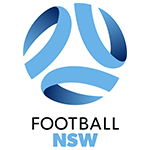In an exciting first for football in Queensland, four of the state’s top female referees are set to take control of an NPL match this Saturday.
In an exciting first for football in Queensland, four of the state-s top female referees are set to take control of this Saturday-s National Premier Leagues senior men-s match between Moreton Bay United and Brisbane Roar NYL at Wolter Park.
The NPL Queensland pathway for players and coaches is well-publicised, but the state-s premier club football competition also offers an invaluable opportunity for elite referees to sharpen their skills in a high-standard match environment week-to-week.
The Jets-Roar fixture is the first time a senior men's NPL Queensland match has been officiated by an all-female team of referees.
The match-day officials will be led by Rachel Mitchenson on the pitch, with Renae Coghill and Karlee Patchett running the lines. Lara Smith will serve as fourth official, before taking up the whistle for the Under 20-s fixture immediately afterward.
David Wiebe, Football Queensland-s Referee Development Administrator, believes this weekend-s all-female officiating team is a positive step to arrest a recent slide in female referee participation.
“Last year we realised that the number of female referees was starting to dwindle and we-re not one hundred per cent sure why that is,” Wiebe explained.
“We-re starting to look at that but we want to promote female referees within the game and this is a perfect opportunity for us to do that with four very talented referees.”
Wiebe was eager to point out that the appointments are not a gimmick and that it was part of the referee-s development and ensuring NPL players, coaches and fans benefit from the best refereeing available.
“It-s definitely not a one-off. If the girl-s perform, and we have all confidence they will, then they will get more games - that-s the whole point.”
Queensland currently boasts a total of 1166 registered outdoor referees, including 116 females officiating around the state. Of that number, 43 female referees are over 18, but only four hold the required accreditation to be the main official at NPL senior level.
Wiebe, who is a highly regarded NPL whistle-blower in his own right, said Football Queensland identified the pathway for aspiring female referees needed to be clearer and the situation was being corrected.
“The pathway hasn-t been transparent in the past. This year through the zones we-ve introduced a talent identification panel, and any male or female referee can be on that panel.”
“As well as that we-ve introduced a state talent panel, and from there they go to the national talent panel, where they move into the W-League and the NPL from there.”
“Especially for a young junior female referee coming through the ranks it probably wasn-t as clear, but now we-re starting to make it clear that this is the complete pathway you can follow all the way through.”
“It-s a lot easier for the female referees to progress because there are lot less referees at the top level so they can start moving up a lot easier.”
He said Queensland-s production line of high quality referees - both male and female - was borne of hard work and planning from both administrators and the referees themselves.
“Our referees train four to five nights a week just to keep their fitness up. Not only that, they attend their own training sessions going through incidents from the A-League and get video clips sent to them to review.”
At present, Queensland enjoys an unrivalled reputation as a breeding ground match officials, including A-League referees Alan Milliner, Chris Beath and Jared Gillet, who also regularly take control of NPL fixtures.
Wiebe explained that senior referees are generous with their time guiding aspiring whistle-blowers because they had benefitted from similar support earlier in their careers.
“They introduced a mentor programme a while back. That had the likes of (former national Director of Referees and FIFA World Cup referee) Mark Shield looking after Alan Milliner, Chris Beath and Jared Gillet, who now have their FIFA badges and are moving up through the ranks.”
“That-s purely because of the support they were given and, because of the support they got, they are now giving back. It-s a cycle we hope to keep going while we also continue to refine it.”
“As a team they tend to push each other and support each other and it-s shown through to where we are now.”
Wiebe admitted that refereeing wasn-t without its challenges but that it also offers rewards for those who feel a connection to the sport.
“Most referees have got a fair amount of passion to be involved in the game in some way, shape or form,” he said.
“Whether they played in the past or whether they just want to contribute back to the game that they love, it-s part of the reason why most of us do it.”
“Most referees don-t do it for the money. Most of the senior top referees do it because they enjoy running out on to the park and being involved in the game as much as possible.”
Citing his own case, Wiebe said it was his father that encouraged him to take up refereeing 21 years ago and that from there he had “caught the bug”.
“I was a player and dad made me sit down and do the referee-s course with him. I found it interesting learning about the laws of the game and saying to myself, ‘oh, I didn-t know that.-”
“I balanced refereeing with playing for a while but, when I realised my playing career wasn-t going to go further, I decided to referee full time.”
He was keen to point out that while referees are human, as with elite players, they are coached to continually improve their performances on the pitch.
“There are consequences for referees that make mistakes. I want to be clear about that.”
“We are not a breed that is untouchable. We do monitor our own and we do pull people back and say ‘you need to work on this or work on that-.”
“All the NPL games are now taped, so we will sit down with the referees, talk about the incidents, where they-ve gone wrong, what could-ve gone better and how to improve it.”








